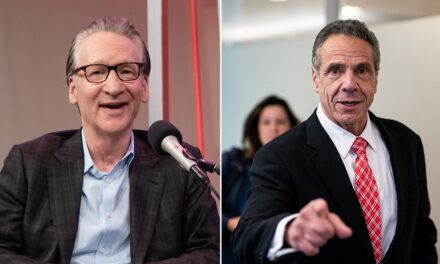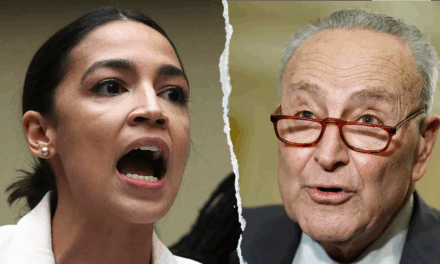The world of media is a dynamic environment that thrives on the rapid exchange of ideas, opinions, and information. However, this fast-paced landscape is not without its dangers. Media personalities often find themselves in the spotlight, not just for their reporting but for their personal opinions and comments, which can sometimes lead to serious repercussions. From Terry Moran’s controversial remarks to Don Lemon’s problematic statements, the consequences faced by these individuals highlight the fine line between freedom of expression and accountability.
As public figures, media personalities need to be acutely aware that their words hold weight. Terry Moran, for example, has built a substantial career as a journalist, yet he found himself embroiled in controversy after expressing views that many deemed insensitive. Moran, known for his tenure with ABC News and public critiques of political figures, discovered that comments made in a heated moment could impact not just personal reputation but also professional opportunities.
Following a particularly charged broadcast segment, Moran’s critical remarks about political figures were met with backlash online and within the media community. Critics argued that his expressions strayed from journalistic impartiality, leading to calls for transparency and responsibility. In response, media executives began to reconsider how they measured not just the news content but the context of personal opinions offered by their reporters. Moran learned firsthand that even established journalists could face severe scrutiny for stepping too far outside of the boundaries of acceptable discourse.
Close to Moran, Don Lemon, the longtime anchor and journalist at CNN, has had his fair share of highly publicized controversies impacting his career trajectory. Lemon’s remarks about race relations and his subsequent critical comments regarding political figures have consistently drawn attention, both supportive and negative. His outspoken nature has led to a polarizing reputation, with some viewers admiring his candor, while others have accused him of fostering division.
One of Lemon’s most notable incidents occurred during a live discussion where he made a controversial statement regarding the intelligence of certain demographic groups. This comment ignited a media firestorm, with aspects of his commentary branded as offensive and inappropriate. As a result, Lemon faced significant backlash, prompting CNN to issue statements regarding the importance of responsible discourse and the necessity of maintaining journalistic integrity. Although he has managed to retain his position at CNN, these incidents show how quickly public perception can shift and how essential accountability is in journalism.
Another prominent example is Roseanne Barr, whose canceled sitcom reboot prompted significant discussions about consequences in the media for offensive remarks. After tweeting a racially charged comment that compared a former White House advisor to an ape, Barr faced immediate backlash that ultimately led to the cancellation of her show. This incident became a flashpoint in discussions about social media’s role in the dissemination of harmful rhetoric. The fallout from Barr’s comments served as a stark reminder that public platforms come with a heightened sense of responsibility and potentially serious repercussions for those who misuse that power.
Additionally, the fallout extended to organizations that employ these media personalities. The swift action taken by networks illustrates how the repercussions stemming from ill-timed remarks can affect not just the individual, but their entire employer brand. Organizations must now navigate the delicate balance between fostering an environment of free speech while not compromising on standards of decency and professional ethics.
Moving beyond individual instances, the nature of public discourse in the United States has shifted dramatically in recent years, particularly with the advent of social media. Platforms like Twitter and Instagram have created an arena where personal opinions can be disseminated on a global scale almost instantaneously. The viral nature of these platforms often amplifies problematic comments much faster than traditional media could, leading to heightened consequences for individuals who step into the limelight. With audiences ready to voice their dissent, the standard for acceptable commentary has risen, and insensitivity may result in immediate backlash. This change has forced many media personalities to tread more cautiously, carefully calibrating their messages to avoid triggering public outrage.
Furthermore, the cancel culture movement has played a significant role in how media personalities gauge the weight of their words. While some argue that cancel culture can lead to unjust consequences and stifle free speech, others contend that it is an essential tool for holding individuals accountable for their dialogue. This discourse emphasizes that while the First Amendment protects freedom of speech, it does not shield individuals from the societal consequences that may arise from their comments.
Media outlets are increasingly aware of the importance of diversifying their talent pool to include a variety of perspectives and voices, thus avoiding situations that might arise from controversial statements made by a singular identity. The push for greater representation within newsrooms signifies a broader shift toward a more inclusive approach to journalism, which aims to mitigate the risks that come with individual remarks and their potential fallout. By hiring staff that can contextualize issues from different backgrounds, networks can foster a culture of sensitivity and inclusivity.
In conclusion, the actions and words of media personalities like Terry Moran and Don Lemon demonstrate the crucial balance journalists must maintain between expressing personal opinions while remaining within the bounds of professional standards. The consequences faced by these individuals serve as clear reminders of the heightened responsibility that comes with the territory of being in the public eye. As the media landscape continues to evolve alongside societal values, journalists must navigate this complex terrain with care, ensuring that their commentary serves the public interest while gracefully handling the repercussions of being a voice in a polarizing atmosphere.
Ultimately, the experiences of these media figures reinforce the idea that accountability is key in this era of heightened scrutiny. Journalists not only hold a powerful position but also bear a significant responsibility to act with integrity and respect, knowing that their words can have both immediate and long-reaching consequences.
































